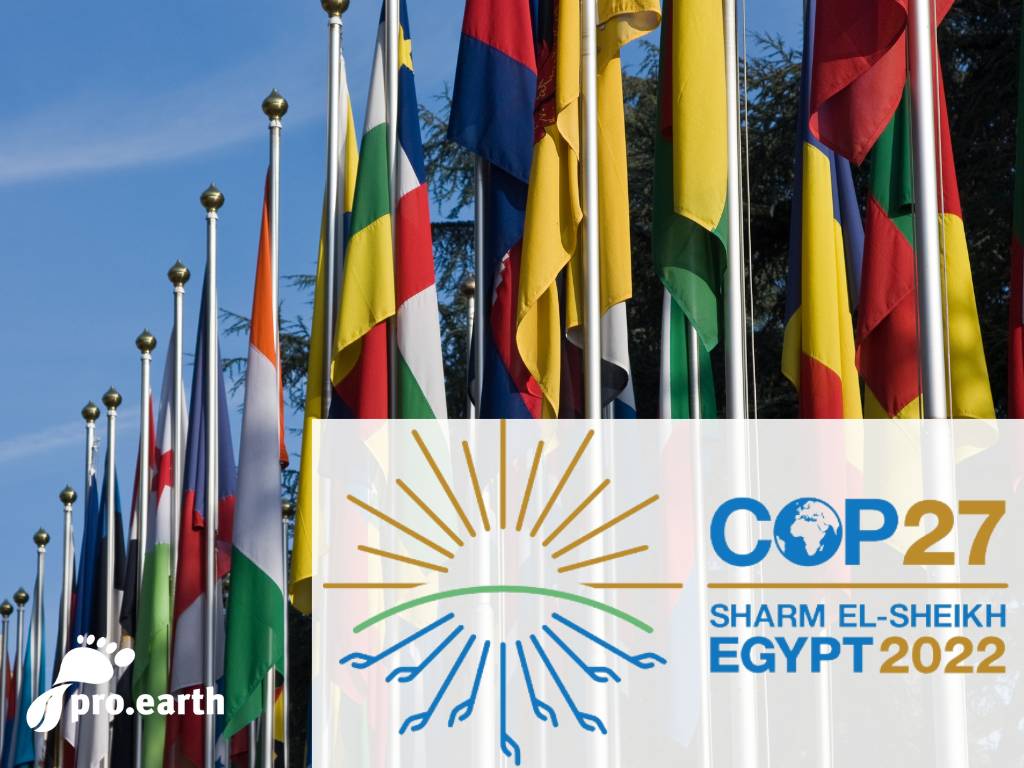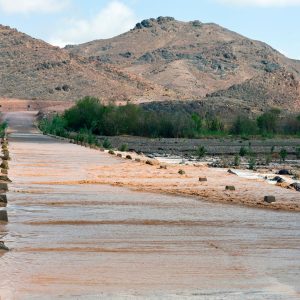
For a whole two weeks, 34,000 representatives from around 200 countries met in Sharm el-Sheik to discuss measures to curb global warming and establish climate justice between polluter states and the poorest affected countries. It was a tough, sometimes tense struggle. At times, the EU even threatened to pull out of the negotiations. In the end, the conference was extended until Sunday morning in order to reach a joint final paper after all.
At the opening of the 27th UN Climate Change Conference, Antonio Guterrés issued an urgent warning: "We are fighting the battle of our lives - and we are losing" in the face of droughts, floods, storms and rising sea levels caused by the climate crisis. Guterrés continued: "We are on a highway to climate hell!"
What did COP27 achieve?
The most important achievement is the establishment of a fund for compensation payments to the poorest countries worldwide affected by climate damage by the polluter states. They had to fight for this for 30 years, as the industrialized countries had previously rejected the polluter pays principle. The USA initially put up great resistance at the climate summit. The EU prevailed with this demand and insisted that only the poorest affected developing countries (number: 58) should be allowed to draw on these funds. However, the exact processing of these payments will not be determined until the next summit in Dubai in 2023. It is also disputed whether only industrialized countries or also emerging countries such as China - the world's largest emitter - should also pay into the fund.
UN Secretary-General Antonio Guterrés commented: "I welcome the decision to set up a fund for loss and damage and to make it operational in the near future. Of course, this will not be enough, but it is a much-needed political signal to restore the trust that has been destroyed."
Limiting global warming to 1.5 degrees
With regard to curbing global warming, the final paper calls on countries to voluntarily tighten up their climate action plans, but no hard measures were laid down. For example, the international community was unable to agree on a phase-out of fossil fuels in its final paper, which would have been so important for achieving the 1.5 degree target. On the contrary: according to research by the "Leave it in the ground" initiative, the amount of fossil fuels produced is to be almost doubled!
Oil-producing countries in particular, such as Saudi Arabia, but also China, blocked more far-reaching formulations. This has led to much frustration and disappointment among European politicians, activists and environmentalists.
Criticism of the results
Jan Kowalzig, climate expert at the development organization Oxfam, is quoted in the Tagesspiegel: The agreed fund is a "milestone", but the resolutions on climate protection are "depressing". He also criticizes the lack of focus on the expansion of renewable energies.
Deutschlandfunk writes on the Paris 1.5 degree target: "Scientists now believe that achieving the 1.5 degree target is unrealistic. Almost all scenarios on probable emissions in the next ten years and decades, depending on economic development and intensive climate protection, expect the 1.5 degrees to be exceeded at the very least - possibly soon."
Sueddeutsche Zeitung quotes climate researcher Mojib Latif, who shares this opinion: "We will definitely break the 1.5 degree mark". At the moment, the world is on course for global warming of 2.5 degrees Celsius compared to the pre-industrial age. "I would even say three degrees," says the Kiel scientist.
In a statement on November 19, UN Secretary-General Antonio Guterrés was highly critical of the unambitious final outcome of the conference, which many experts believe does not go beyond the Glasgow outcome: "Our planet is still in the emergency room. We need to drastically reduce emissions now - and this is an issue that was not addressed at this COP. A fund for loss and damage is important - but it is not a solution if the climate crisis wipes a small island nation off the map or turns an entire African country into a desert.(...)If we are to have any chance at all of reaching the 1.5 figure, we need to invest massively in renewable energy and end our dependence on fossil fuels. "
The climate summit was accompanied by worldwide demonstrations and actions demanding more ambitious targets from the participating countries. The German climate activist Luisa Neubauer is convinced that it was the pressure exerted by the demonstrators that made the breakthrough on compensation payments for climate damage possible in the first place. "That's why this summit also sends a message: Activism works." The agreement on aid "strengthens all of us here in the conviction that we can make a difference. And everything else in the declaration also reinforces our belief that we must make a difference." (dpa)
What @Luisamneubauer says about the #COP27!
- Nurder Koch (@NurderK) November 20, 2022
"It's a farce." pic.twitter.com/Zcjj0VhwAH
Greta Thunberg Tweet
Without any binding commitments to rapidly and immediately reduce greenhouse gases, the world stands no chance to deliver on the 1.5°C limit, and by doing so minimizing risks of uprooting the life supporting systems we all depend on and endangering countless human lives.#COP27
- Greta Thunberg (@GretaThunberg) November 20, 2022
Our pro.earth.conclusion:
We understand that it is a difficult process to get 200 countries to agree, but many countries still don't seem to realize that we are metaphorically driving full speed towards a wall. Blindly. Ignoring all scientific calculations. And also all the people who are already starving today because of droughts, who have lost everything because of floods.






